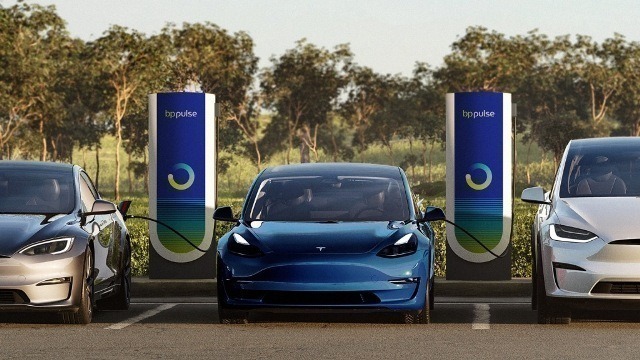BP has agreed to sell its mobility & convenience and bp pulse operations in the Netherlands to Dutch fuel and lubricants distributor Catom, marking a significant step in bp’s strategic divestment programme.
The transaction — expected to close by the end of 2025 pending regulatory approvals — includes around 300 bp-owned or branded retail sites and 23 EV charging hubs (15 operational and 8 under development), along with its local fleet business.
The sale is part of BP’s strategy to reshape and streamline its downstream operations, aligning with its ambition to focus on leading integrated energy positions. bp has committed to a $20 billion divestment programme and, as of Q1 2025, had signed or completed $1.5 billion in asset sales. It now targets $3–4 billion in total divestments for 2025.
Catom, which operates the OK retail brand, will expand its Dutch retail footprint to over 400 sites through this acquisition. The company emerged as the preferred buyer based on the strength of its offer, long-term business plans, and commitment to safeguarding employee conditions.
Emma Delaney, EVP customers & products at BP, in a news statement, said: “We have built a high-quality retail and convenience business in the Netherlands but believe a new owner is best placed to take it forward.”
Jan Willem Westerhuis, CEO of Catom and OK, said the acquisition positions the company closer to becoming the number one retail fuel and convenience brand in the Netherlands.
The deal illustrates BP’s commitment to high-grading its portfolio while exiting non-core downstream markets, allowing it to redeploy capital toward growth opportunities in energy transition and integrated energy hubs.
BP EV plans
BP is recalibrating its EV charging strategy by focusing on high-growth markets such as the United States and the United Kingdom, while scaling back in less profitable regions like Germany and Australia.
BP aims to develop a more capital-efficient and returns-focused EV charging network by prioritizing locations with strong demand and integration opportunities with its broader energy and retail operations. This strategic shift reflects BP’s emphasis on disciplined growth, asset optimization, and long-term profitability in the transition to electric mobility.
BP aims to grow its global EV charging network to 100,000 charge points by 2030, with around 90 percent being rapid or ultra-fast chargers, Reuters news report said.
In the United States, BP plans to invest $1 billion by 2030 (including approximately $500 million over the next 2–3 years) specifically to expand U.S. EV charging infrastructure, with a goal of installing over 3,000 new charging points by 2030, Reddit.com reports.
In the United Kingdom, BP Pulse committed £1 billion over ten years (starting in 2022) to expand fast and ultra-fast charging infrastructure, aiming to triple the number of public charge points by 2030.
BP has already met its mid‑2025 goal of 40,000 global charge points, ahead of schedule, and expects the EV charging unit to become profitable during 2025.
Baburajan Kizhakedath

